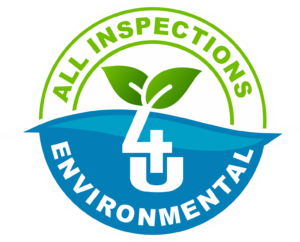What Is

AVAILABLE SERVICE IN MIAMI, BROWARD & PALM BEACH COUNTIES
It keeps coming to my attention that some home buyers do not understand the home inspection process or what to expect, let alone what they are paying for, I have heard time and time again from our clients that they are told that they have to pay for a home inspection but are not being educated on what to expect.
Let’s educate. Once you make an accepted offer on a home, your realtor should help you schedule your home inspection. There is usually a contingency listed in the offer you made, that says basically, you don’t have to purchase the home if you don’t find the home in acceptable condition after the home inspection.
Your realtor will give you a list of local inspectors that you can choose from and decide which inspector you want working for you. Buyers are often times intimidated by this process because they are still not sure what a home inspection entails and are definitely not ready to interview home inspectors.
Here are a few things to remember.
1. You are going to be paying the home inspector to work for you to inspect the home that you want to buy. The home inspector knows that they are working for you, not the real estate agent, not the title company, not the lender, not the seller. You hire the home inspector and you should expect them to provide you quality, professional service every step of the way.
2. You should try and attend the home inspection. Any professional home inspector wants you to be at the inspection. They want you to feel comfortable with your new home and they want to provide you with a full-service inspection of your home. Your home inspector wants to show you around, answer questions, and help you to know that you are making the right decision, or not.
3. Whether you decide to continue on with the purchase of the home, you should know that no home inspection is a pass or fail. Your home inspector will report on the condition of the property at the time of the inspection. Your home inspector will point out items that need attention and if any defects or safety issues are found they will recommend repair or replacement of the component. It is then up to you, the buyer, to decide if you need to have these items taken care of before purchasing or after. Your real estate agent will help you with these items, the home inspection is typically done before the appraisal and some of the items on the home inspection report can be addressed before the lender gets the appraisal and prevent delays in the lending process.
4. The Report – home inspection reports differ slightly by inspectors but you should expect to receive a detailed report 20 – 50 pages long with detailed descriptions of the report findings that include color images or videos of findings or defects. You should expect to receive your report within 24 hours of the inspection. You should also know that your inspector will expect to be paid upon completion of services and most will not release a written report without payment so have your checkbook, credit card or cash payment ready at the end of the inspection.
Some states require home inspectors to be licensed. Florida does require license and insurance, but your home inspector might be (also) certified by a home inspection association. The certification process includes education and testing similar to licensing requirements by other states. Your certified home inspector will be a member of a home inspection association that requires continuing education to remain certified. Your home inspector should have extensive knowledge and training in many areas such as electrical systems, plumbing systems, heating and cooling systems and roofing. Your home inspector should have a combination of experience, training and field work.
Some states require home inspectors to be licensed. Florida does require license and insurance, but your home inspector might be (also) certified by a home inspection association. The certification process includes education and testing similar to licensing requirements by other states. Your certified home inspector will be a member of a home inspection association that requires continuing education to remain certified. Your home inspector should have extensive knowledge and training in many areas such as electrical systems, plumbing systems, heating and cooling systems and roofing. Your home inspector should have a combination of experience, training and field work.
Now let’s look at what systems and components that your home inspector will be inspecting and reporting on, keep in mind that your home inspector is looking for items that you may or may not have seen during the walk-through when your real estate agent showed you the home.
The home inspector that you hire will inspect and report on:
STRUCTURAL ELEMENTS
Construction of walls, ceilings, floors, roof and foundation. Ask about horizontal cracks versus parallel cracks. Does the foundation seem secure? Does the roof leak? Has there been a fire in the attic?
EXTERIOR EVALUATION
Wall covering, landscaping, grading, elevation, drainage, driveways, fences, sidewalks, fascia, trim, doors, windows, lights and exterior receptacles.
ROOF AND ATTIC
Framing, ventilation, type of roof construction, flashing and gutters. It does not include a guarantee of roof condition nor a roof certification. How many layers are on the roof?
STRUCTURAL ELEMENTS
Construction of walls, ceilings, floors, roof and foundation. Ask about horizontal cracks versus parallel cracks. Does the foundation seem secure? Does the roof leak? Has there been a fire in the attic?
PLUMBING
Your home inspector will check all visible plumbing, run water, check under cabinets and feel around visually inspect plumbing for leaks. Crawling into the crawlspace under plumbing areas while water is running or bathtubs are draining will give your inspector an advantage for finding leaks into the crawlspace that may or may not be visible any other way. Your home inspection does not include a sewer inspection.
SYSTEMS AND COMPONENTS
Water heaters, furnaces, air conditioning, duct work, chimney and fireplace. Usually a separate chimney inspection is recommended for safety and cleaning prior to closing. Landscaping sprinkler systems can sometimes be inspected for an extra charge unless it has been winterized during cooler months.
ELECTRICAL
Main panel, circuit breakers, types of wiring, grounding, exhaust fans, receptacles, ceiling fans and light fixtures.
APPLIANCES
Dishwasher, range and oven, built-in microwaves, garbage disposal and, yes, even smoke detectors. Washers and dryers are typically included as well if they remain with the home but ask because those appliances are personal property.
GARAGE
Slab, walls, ceiling, vents, entry, firewall, garage door, openers, lights, receptacles, exterior, windows and roof. Does the garage have a firewall? Does the door to the garage from the house have self-closing hinges?
HOME INSPECTION CHECKLIST ITEMS NEEDING SERVICE
Home inspection reports do not describe the condition of every component if it’s in excellent shape but should note every item that is defective or needing service. The serious problems are:
· Health and safety issues (within reason)
· Roofs with a short life expectancy
· Furnace / A/C malfunctions
· Foundation deficiencies
· Moisture / drainage issues
HOME INSPECTION CHECKLIST OF ITEMS NOT INSPECTED
A home inspector’s standard practice typically does not include the following, for which a specific license to inspect and identify may be required:
· Asbestos
· Radon, Methane, Radiation and Formaldehyde
· Wood-Destroying Organisms
· Mold, Mildew and Fungi
· Rodents
· Lead
OTHER INSPECTIONS TO BE CONSIDERED:
These other inspections are not included under the general home inspection but are part of the items you should consider evaluating in order to make a good decision. Look for an inspector that is qualified to do these inspections (licensed & insured). Part of the process of finding an inspector that fills your needs is to be able to provide the most services and complete reports for your evaluation. This will help you in the cost of doing the inspections (as a bundle) and you will have all the reports and findings for your evaluation.
· Wind Mitigation (Insurance)
· 4 Point Inspection (Any house over 30 years old)
· Septic Tank
· Seawalls
· Termites
· Video Inspection of drain lines
· Pool Inspections
· Water quality testing
· FHA Water Testing
· Commercial Inspections
· 40-year certifications (residential & commercial)
· VOC (Volatile Organic Compound Testing) air testing
It is important to remember the inspection report will identify issues or defects found during the home inspection. Knowing that components and systems can and will fail at any given time, being a homeowner means knowing your home as a whole system and implementing preventive maintenance and repairs to prevent expensive repairs in the future. What you don’t want is to find something after the purchase that would have been a deal breaker before the purchase. Find a home inspector that will give your new purchase a thorough inspection and give you peace of mind that you know the systems components inside and out. Most importantly, after the purchase, remember to give your home love and care with regular and continued maintenance and it will provide you and your family security for years to come.
If you are ready to hire a home inspector we would like to be interviewed for the job. Give us a call and we will be happy to answer any questions that you have and promise to provide you with quality, professional full service before, during and after the inspection.
Having a home inspection done by All Inspection 4U will give you the peace of mind you need when buying a new home.
>> SEE ATTACHED LINK TO THE STANDARD OF PRACTICE OF THE STATE OF FLORIDA
To schedule an inspection, call (954) 802-8524
Call (954) 802-8524
SCHEDULE AN INSPECTION TODAY


